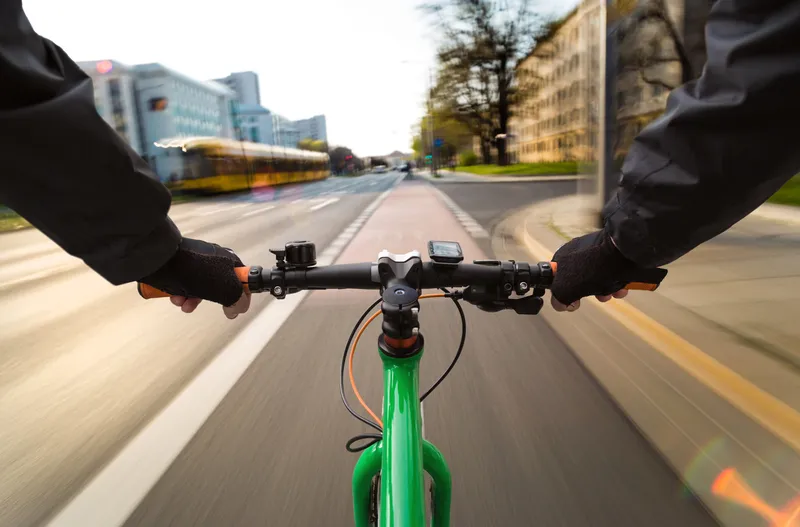A new survey of over 2,000 members of the public by the Institution of Mechanical Engineers and ICM Unlimited has found that 57 per cent of the public are worried about global warming, with 14 per cent saying they were ‘very worried’.
The poll found that 64 per cent of people think global warming is already a problem now, while 70 per cent said they think global warming will be a problem in 20 years’ time. The main issues the respondents said they were worried about were flooding and sea level rises (63
August 4, 2015
Read time: 3 mins
A new survey of over 2,000 members of the public by the 5025 Institution of Mechanical Engineers and ICM Unlimited has found that 57 per cent of the public are worried about global warming, with 14 per cent saying they were ‘very worried’.
The poll found that 64 per cent of people think global warming is already a problem now, while 70 per cent said they think global warming will be a problem in 20 years’ time. The main issues the respondents said they were worried about were flooding and sea level rises (63 per cent), extreme weather like hurricanes and cyclones (60 per cent), and droughts and water shortages (53 per cent).
The survey asked people which methods they think are the most effective method for combating man-made climate change with 25 per cent saying changing to energy sources that produce less carbon dioxide; 15 per cent suggested switching all electricity production to renewable sources and 15 per cent said cutting down energy consumption. Only 6 per cent of those surveyed said that geoengineering would be the most effective method.
Despite the concerns for the impact of global warming, 52 per cent of the people surveyed said they did not think we should pay more tax on products that cause more pollution and carbon emissions, compared to 48 per cent who said they should.
Dr Jenifer Baxter, Head of Energy and Environment at the Institution of Mechanical Engineers, said in response to the results: “Since the 2008 economic crash, climate change has drifted down the political agenda. But these results show that it is an issue that still worries the majority of people.
“As we’ve seen in recent years, the UK is particularly susceptible to flooding and sea level rises, and this is something we are likely to see more of unless urgent action is taken to prevent and adapt to climate change.
“With the UN climate change talks in Paris just four months away and speculation mounting over cuts to public spending, Government needs to clarify how the UK will meet its ambitious carbon reduction targets. The cheapest options for energy generally remain the high carbon options. It’s therefore an unfortunate reality that reducing spending will mean increasing emissions.
“By allowing the market to drive energy options, we could end up with the ‘worst case’ in terms of pollution. It is important that the Government works with experts across the sector to understand the most appropriate market intervention and regulation to achieve real reductions in CO2.
“Government needs to detail how it will step up efforts to wind-down coal-fired generation, which produces much more CO2 than gas or nuclear power plants, and support research and development into the new generation of renewable energy technologies.”
The poll found that 64 per cent of people think global warming is already a problem now, while 70 per cent said they think global warming will be a problem in 20 years’ time. The main issues the respondents said they were worried about were flooding and sea level rises (63 per cent), extreme weather like hurricanes and cyclones (60 per cent), and droughts and water shortages (53 per cent).
The survey asked people which methods they think are the most effective method for combating man-made climate change with 25 per cent saying changing to energy sources that produce less carbon dioxide; 15 per cent suggested switching all electricity production to renewable sources and 15 per cent said cutting down energy consumption. Only 6 per cent of those surveyed said that geoengineering would be the most effective method.
Despite the concerns for the impact of global warming, 52 per cent of the people surveyed said they did not think we should pay more tax on products that cause more pollution and carbon emissions, compared to 48 per cent who said they should.
Dr Jenifer Baxter, Head of Energy and Environment at the Institution of Mechanical Engineers, said in response to the results: “Since the 2008 economic crash, climate change has drifted down the political agenda. But these results show that it is an issue that still worries the majority of people.
“As we’ve seen in recent years, the UK is particularly susceptible to flooding and sea level rises, and this is something we are likely to see more of unless urgent action is taken to prevent and adapt to climate change.
“With the UN climate change talks in Paris just four months away and speculation mounting over cuts to public spending, Government needs to clarify how the UK will meet its ambitious carbon reduction targets. The cheapest options for energy generally remain the high carbon options. It’s therefore an unfortunate reality that reducing spending will mean increasing emissions.
“By allowing the market to drive energy options, we could end up with the ‘worst case’ in terms of pollution. It is important that the Government works with experts across the sector to understand the most appropriate market intervention and regulation to achieve real reductions in CO2.
“Government needs to detail how it will step up efforts to wind-down coal-fired generation, which produces much more CO2 than gas or nuclear power plants, and support research and development into the new generation of renewable energy technologies.”








